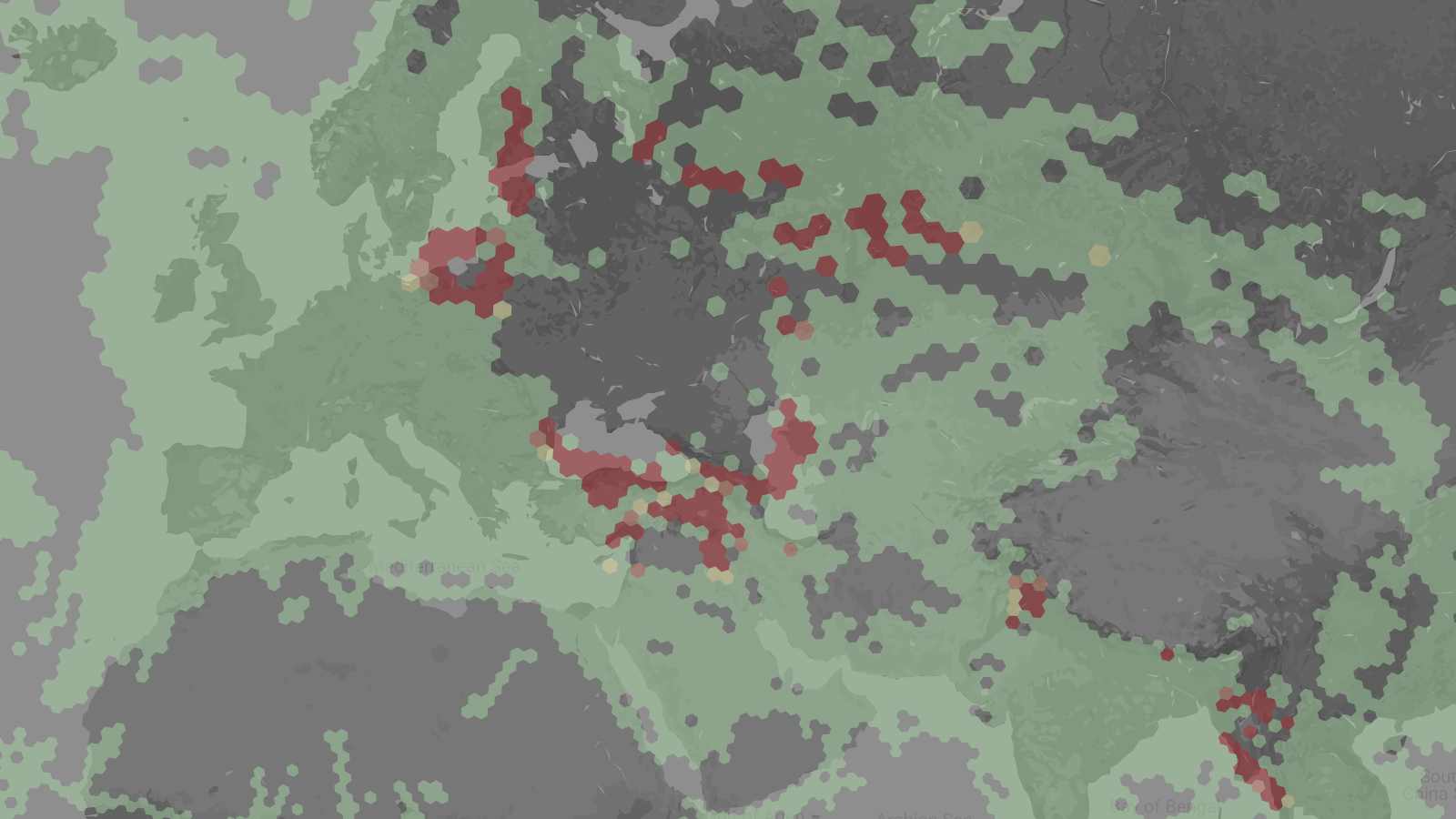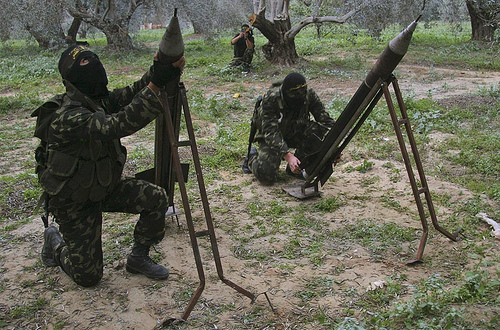Was the Raid on the Freedom Flotilla Legal?

Early Monday morning Israeli commandos rappelled from helicopters onto the deck of the Mavi Marmara, a Turkish ship bearing tons of humanitarian aid to Gaza. There were about 700 passengers aboard the ship at the time. Some of the passengers resisted the onslaught with knives and clubs. In the end, at least 9 activists were killed and dozens of others were injured.
The raid took place in international waters. Under international maritime law, a country has the right to intercept ships in international waters to enforce a legal blockade. Which invites the question: Is the blockade of Gaza legal? If not, then Israel had no right to attack the flotilla in international waters, and the passengers had every right to defend themselves against what would be an act of piracy and/or war. (Even if the raid was legal, the passengers would have a right to defend themselves. The right to enforce a blockade wouldn’t imply the obligation to lie down and take it. Non-violent resistance would have been the wiser strategy in this case, considering that amateurs with kitchen knives and wrenches were confronted by professionals with automatic weapons, but that’s a tactical question.)
The Christian Science Monitor explains the legal issue:
“The real question is: “Is the blockade itself lawful?’” says Douglas Guilfoyle, a specialist in international and maritime law at King’s College London. “Everything else turns on that.”
Mr. Guilfoyle says that under the international Law of Armed Conflict a state that has legally established a blockade can enforce it by boarding vessels in international waters that it reasonably expects might breach the blockade.
But a blockade itself is illegal, he says, “if it will cause excessive damage to the civilian population in relation to the military advantage gained… so therefore intercepting a vessel on the high seas to support or enforce the blockade would not be lawful.” [CSM]
The blockade of Gaza has imposed terrible hardships on the civilian population for questionable military gain. According to the International Committee of the Red Cross, the blockade deprives 1.5 million civilians of food, medical care, and jobs. Israel says the blockade is necessary to prevent Hamas from launching rockets into Israel from Gaza.
The blockade is supposedly targeting Hamas, but Hamas controls the smuggling tunnels that supply the black market–so the group gets kickbacks on all the commerce through the tunnels. Ironically, Israel’s blockade is lining Hamas’s pockets.
Legal blogger Kevin Jon Heller raises another interesting question: The law allows nations to enforce blockades in international waters during international armed conflicts (IAC). But is Israel’s blockade of Gaza an international conflict?
Israel claims that it’s not occupying Gaza–to describe the coercion as “an occupation” would imply the Gaza is another country. Also, as Heller points out, if Israel conceded that it was occupying Gaza, it would therefore be bound by the Fourth Geneva Convention, which would drastically limit the amount of suffering Israel could legally inflict on non-combatants.
Legality aside, Israel’s commando raid was reckless. They sent a handful of commandos to occupy a vessel carrying hundreds of keyed up activists. It was ridiculous to assume that everyone was going to meekly submit. The other boats in the flotilla surrendered peacefully, but as the old saying goes, hope is not a plan. Were these troops were prepared to quell a riot if they were met with anything less than unconditional surrender? If not, the Israelis were negligently endangering their own troops as well as the civilian passengers.





